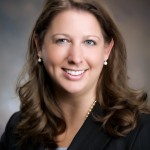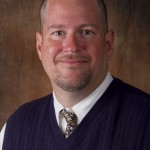Alumni in the Professions from Fall 2011 Southern Register
Jake Morris (BA 1989) recalls something the Center director said back in the late 1980s: “I still remember Bill Ferris telling me that I could do anything with a degree in Southern Studies.” To test that thesis, this article discusses Southern Studies alumni in the professions. It uses an old definition of the professions as people in the law, the ministry, and medicine—the only fields of expertise in the late 1800s that carried particular status, forms of learning, forms of address, and often forms of respect. For this article, I asked a number of alumni who either came to Southern Studies as ministers or lawyers, or who went into the law, medicine, or the ministry as alumni about the relationship between their degrees and their professional life or training.
The Law
Of the three traditionally defined professions, the law has attracted the most Southern Studies students. A large and growing number of alumni (not to mention four Southern Studies faculty and staff members) have gone to law school, and many—but not all—are practicing lawyers. Several wrote that Southern Studies did a solid job preparing them for law school.
Amanda Brown (BA 2006) practices law in the health care group at Phelps Dunbar LLP in Tupelo. A graduate of the University of Mississippi Law School, she recalled that, “law school seemed very foreign at first. The Socratic method made my palms sweat, and I spent a lot of time reading about contracts and torts, which were not nearly as interesting or enjoyable as reading Rick Bragg or Jill McCorkle.” Ultimately, she decided her work as Southern Studies major “gave me a distinct advantage in law school, which has subsequently carried over into my law practice. For me, the three most important components of my Southern Studies education were learning to read carefully, write well, and engage in thoughtful and creative analysis.”

Mark Harrod (BA 2006) who also got a degree from the University of Mississippi Law School, practices law in Nashville, mostly “defending municipalities, municipal employees, and elected officials in civil lawsuits throughout middle Tennessee. My undergraduate courses, in particular the Southern Studies seminars, have proven beneficial in preparing me both for law school and the practice of law. Irrespective of the standard perception that litigators make their points (and their living) through arguments before the court, most of my time is spent reading and writing. I found that the Southern Studies undergraduate program engenders in its students an ability to study, comprehend, and discuss an inordinately wide variety of material—from art to economics.”
Walker Lasiter (BA 1990, MA 1996) agreed that an undergraduate Southern Studies major provided good training for law school. “The interdisciplinary approach was crucial to my study of the law, which required integration of concepts from many different areas.” Instead of going on to practice law, Lassiter returned to pursue a Southern Studies MA degree. From there he landed a job at the Louisiana Endowment for the Humanities, where he is now the Director of Grants and Federal Liaison. “I use my Southern Studies and law degrees daily,” he said, “whether it is reviewing contracts and providing opinions on trademark and copyright issues or vetting scholarly material in grant applications on Louisiana history and culture.”
In his third year at Loyola Law School in Los Angeles, Brock Herrington (BA 2008) has also found ways to connect law school with Southern Studies interests. At first he worried how his classmates would respond to a Southerner with a unique degree but was surprised that “everyone has been so fascinated by my Southernness. When I first started law school, everyone was captivated by my accent and loved to hear me speak. All of the people I met had these romanticized ideas about the South . . . or they imagined a region where people are always polite and are schooled in the most proper etiquette. I constantly have friends asking me to set them up with single friends from home.”
Asked about the relationship between Southern Studies and the practice of law, Joe Hairston (MA 1995) first discussed his job representing the Texas Association of School Boards. Hairston writes of the ways recent members of the Texas legislature tend to disparage all forms of government, state and federal. “Fortunately, Southern Studies gives me perspective about all of this. I simply close my eyes and pretend that I am in the South Carolina of John C. Calhoun. Southern Studies provides the consolation of knowing that Texans are not the first anti-American demagogues and surely will not be the last.”
The Ministry
Some people thinking about Southern Studies students in the ministry might first think of some rock bands, including the Apostles, the Circuit Riders, and the Preacher’s Kids, led by SST students. In fact, the program has attracted several people who are actual ministers or went on to become ministers in training.
Eunice Milton Benton (MA 1995) writes that “for the fourteen years between 1997 and 2011 I lived and worked at the intersection of Southern culture and the Unitarian Universalist religious tradition—a unique and challenging locus from which to do ministry in the world!” Benton worked in the challenging position of the Mid-South District Executive for the Unitarian Universalist Association of Congregations. “My academic studies and research—the most powerful of which had been documentary interviews with folks who had lived their lives as Unitarian Universalists in the South—coupled with my firsthand knowledge of the region’s culture allowed me to feel quite grounded in my work. Although the religious tradition with which I was involved had only a few strong stories in the South, I could see the enormous possibilities for linking the values of Unitarian Universalism with those of today’s contemporary South. The ‘green’ values that Unitarian Universalists champion have much common turf with a traditionally rural culture. The deep appreciation Unitarian Universalists have for community and covenant resonate with the South’s strong sense of place and its high valuing of tradition.”
Kyle Bennett (MA 1996) came to the program as a newly ordained priest with interests in Walker Percy and the blues. “My first position after ordination was as the Episcopal Chaplain at Ole Miss and assistant at St. Peter’s Episcopal Church.” Bennett recalls the richness not just of Southern Studies classes but of friendships with fellow students. His thesis “was predominantly on the hill country blues and the lives of R. L. Burnside and Junior Kimbrough.” Bennett now lives “on the edge of the everglades at St. Mark’s Episcopal Church on beautiful Marco Island, where I have introduced the snowbirds to grits. I have not worn a black clerical shirt in six years, preferring a Hawaiian print one with shorts, although I still wear my seersucker and white bucks on Easter Sunday. Once a year we have a Y’all Fest, featuring a Bluegrass Mass and Southern home cooking.”
Among the alumni currently in divinity schools and religious studies programs, Miranda Cully Griffin (MA 2008) is in the process of discernment for the deaconate in the Anglican Church of North America. She came to Southern Studies knowing the importance of religion in the region’s culture and writes that the program helped make her “culturally sensitive to all the religious transformation that is sweeping over our (typically) conservative, evangelical Southern religion.”
Now in her final year of seminary at Emory’s Candler School of Theology, Griffin writes, “I’m excited to apply my theology training to my cultural studies in order to reach people with the Gospel I feel called to proclaim.”
Sarah Condon (BA 2006), who is studying for the Episcopal priesthood at Yale Divinity School, writes of two connections between Southern Studies and the ministry. First, “I learned in Southern Studies that one of the most important things to remember is that everyone has a story. People have different ways of telling their stories and (more often than not) very different memories of the same stories. This is important and not to be overlooked. In ministry I have learned that people’s stories are most precious to them. Sharing those stories creates community (certainly a Southern Studies value) and a deeper sense of how our narratives connect us all to something bigger than ourselves.” Second, Condon discussed how parts of Southern Studies suggested that it was necessary to deal with tragedies and imperfections before it is possible to think about redemption. “This foundation was imperative to take with me into Divinity school.”
Medicine
Medicine may seem the least likely pursuit for Southern Studies alumni, but several work in medicine and counseling. Warren Black (BA 2002), once the leader of the previously mentioned Circuit Riders, works in Nashville “at Cumberland Heights, a treatment center for alcoholism and addiction. My goal is to become a Psychiatric Nurse Practitioner who is also credentialed in counseling,” and he reports that he has been taking science and psychology classes to prepare.

Dan “Jake” Morris is Professor of Psychology and Counseling at Lipscomb University in Nashville. After receiving his BA in 1989, he took several ministerial positions, and he writes that “the relationship between region and religion continues to fascinate me (thank you Charles Wilson).” While working at a church in Arkansas, he took a counseling course and decided to pursue psychology. “For me, the connections between Southern Studies and psychology are quite obvious. We communicate differently. We think differently. We have a different relationship with violence. We have unique connections with family. We have unique connections with community. I think it is also interesting to think about the unique relationship that Southern families and communities have with eccentric (abnormal) behaviors.” Morris compared two understandings of the past: “As a counselor, I gravitate toward the role that the individual past plays in our psyche. As a Southern Studies major, I gravitate toward the role that our regional past plays in our collective and individual psyches.”
Elizabeth Taylor Barton (BA 1991) also emphasized storytelling as a connection between Southern Studies and counseling. While working as a headmaster’s assistant in Nashville she recognized her interest in young people and enrolled in Vanderbilt’s Peabody University to pursue a master’s degree in human development counseling. For the past five years, Barton has worked as a counselor for students at St. Andrews Episcopal School in Jackson.“Upon reflection, I am able to make some correlation between my Southern Studies background and my current role as counselor. Some of my favorite things about the Southern Studies program included learning about people. Stories have always been so important. I think about my folk art class and the fun I had interviewing Uncle Ern, the basket maker from Goodman, Mississippi. I also think about the blues class where I learned about stories through the music. So, I think Southern Studies did help me develop my curiosity of human nature. I believe my primary role as a counselor is to provide a safe, quiet space for people to share their stories.”
When she becomes a doctor of podiatry, Alison Traffanstedt Young may finally prove, as Bill Ferris told students years ago, that Southern Studies alumni can in fact do anything. Young (MA 2006) will enter the Scholl College of Podiatric Medicine in Chicago in Fall 2012. She writes that Southern Studies and other work in the humanities “helped me engage with individuals and communities in a more thoughtful and open way and to think more critically about the factors contributing to health issues, which is unfortunately something that is often lacking in people who go into the healthcare industry.” Asked about the connections between Southern Studies and podiatry, Young writes that one of her biggest goals “is to figure out a way to concretely use both my podiatry degree and my Southern Studies degree. I think there is probably a demand in certain communities for someone who can treat not just podiatric problems (diabetes, for example, has huge foot/lower leg-related implications) but also help address other underlying issues that are bigger than individual health.”
Ted Ownby
